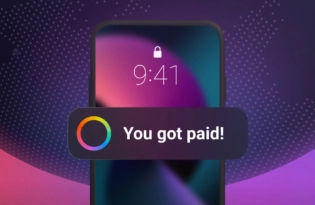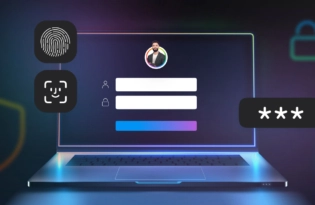HomeResourcesAccount PayableAccount Payable
A comprehensive guide to B2B payments: definitions, methods, and solutions
Outsourcing is a great way to grow your business. But the relationship depends on smooth, secure, on time payments. You also need to pay using local currency and payment methods. This guide shares best practices for B2B payment providers. The right payment provider helps work with the best, anywhere!

Global growth has made working with freelancers and outsourced suppliers an excellent alternative for many fast-growing companies. Outsourcing the workload helps companies maximize efficiency, reduce costs, and increase company-wide effectiveness. Despite the many benefits of working with freelancers and outsourcing providers, companies often need help, especially when paying freelancers overseas. Not only does every freelancer have payment terms and requirements, but also, various countries have different laws and banking processes, making managing payments globally an exhausting challenge for many.
Payment transfer timeframes
While a freelancer isn’t an employee, companies should keep their best interests in mind when it comes to payment timetables. Companies should look for B2B payment methods that guarantee prompt payments for all amounts. Failing to properly pay the freelancers in the freelancer’s native currency, or failing to account for the extended processing time, can lead to a freelancer or supplier to not receive their funds promptly. This, in turn, can result in the business-supplier relationship declining, affecting work processes, and the delivery of goods or services. Companies who value their suppliers should look to B2B payment methods that ensure they can make their payments on time, in the right currency, and the correct amounts.
Payment cyber security
No one wants to make a payment and have the funds disappear or for a cybersecurity issue to threaten the security of a company’s B2B money transfer. That is why companies must use secure B2B payment methods when working with freelancers and international vendors. Paper checks sent through snail mail are easily lost or stolen. Wire transfers are risky because of their popularity with scammers, who easily bypass verification methods and redirect funds into their accounts. Credit cards and PayPal services are rife with security issues and fraud, making them unreliable B2B payment options.
To make sure payments go to their intended destinations, it is essential that companies verify the recipients of payments and that they use a safe electronic payment processes. This is the only way businesses can ensure their funds reach their desired vendor.
Payment method flexibility
Because freelancers and suppliers have different preferences in terms of how they want their payments handled, it is essential that businesses making B2B payments look for flexible payment solutions. With Payoneer, companies can select from various payment methods worldwide, including bank-debit ACH, local bank transfers, and credit/debit card payments, allowing you to manage all your business to business payment methods in one place.
This means companies working with freelancers can simultaneously skip handling single payments and handle business payments to all freelancers and vendors, helping companies ensure that payments are secure and funds are received promptly and thoroughly. Payoneer also offers waived and reduced fees, which can often add up to hundreds, if not thousands, of dollars saved for businesses. That is why companies working with freelancers or global vendors should research different available payment options, even when their freelancers or vendors ask for a specific B2B payment option.
Making business payments: best practices
Entrepreneurs and startups who rely on freelance workers must understand that maintaining a solid relationship is a continuous process. While showing gratitude and offering benefits can go a long way, timely and complete payment in the freelancer’s preferred currency is their most significant worry.
Therefore, businesses should invest in finding a cost-effective way to make business payments to ensure that they use their industry’s best payment practices. To meet the best practices, companies must align their payment expectations with their external suppliers’ expectations. Payment terms vary depending on the country, ranging from by the end of the month to 30 days, net + 14, 30, etc. Some contractors require payment to cover transfer costs, while others expect payment based on a specific exchange rate.
Improperly coordinating payment method best practice expectations may lead to difficulties later on if a freelancer’s preferred payment method is inconvenient for a company or demands extra paperwork, time, or effort.
Reliably communicate realistic transfer times
Numerous businesses fulfill freelancer payments by the agreed-upon deadline yet often need to pay more attention to the time it takes for the transaction to process. When transfers don’t clear immediately or if the chosen payment method isn’t immediate, freelancers experience longer waiting times for their payment than anticipated.
Accurately conveying transfer duration will go a long way to maintaining the rapport between a company and its freelancers, positively impacting work output. Failure to do so will impede workflow and tarnish the business’s reputation. Therefore, it’s essential for companies collaborating with freelancers to communicate transfer times and ensure they make payments reliably and with sufficient time factored in for the transfer process.
Contending with cross-currency payments
A growing number of businesses collaborate with freelancers worldwide, which often involves making cross-currency payments.
Due to fluctuating exchange rates, freelancers might see discrepancies in their invoiced and received amounts. Therefore, it’s essential to manage exchange rates. Many freelancers bill in their local currency and expect the exact invoiced amount, while some companies pay freelancers in their currency, letting the bank handle the conversion.
Hence, it is crucial for companies planning to work with freelancers to find a payment solution that guarantees the total payment amount in the requested currency while accounting for cross-currency exchange fees.
A “Local” global payment solution
These days, businesses no longer have to depend on banks and traditional mail for paying international freelancers, which is positive, as these methods can be slow, expensive, and prone to errors, causing discontent on both sides.
That’s where global payment solutions like Payoneer come into play, providing a user-friendly platform for managing international transactions with freelancers and suppliers. With Payoneer, companies can handle their global business payments as if they were local, minimizing the risk of discrepancies in payment terms, currency rates, and transfer times.
By making sure business to business payments are always prompt, and freelancers are content with the collaboration, companies lay the groundwork for enduring business relationships.
Related resources
Latest articles
-
How to prevent online payment fraud as an SMB
Prevent online payment fraud by overcoming challenges like phishing, fake accounts, and account takeovers (ATO) with enhanced security features from Payoneer.
-
A guide to starting a business in Estonia as a non-citizen
If you’ve thought about opening a new business somewhere with plenty of government support, expanding your business into the EU, or making it easier to work as a contractor or digital nomad anywhere in the European Economic Area (EEA), you should think about starting a business in Estonia…
-
Amazon Fees & Policy Updates 2024
Amazon regularly makes planned updates to fees and policies that may impact Payoneer customers that sell on Amazon. To keep Payoneer customers informed regarding upcoming and past updates, we’re providing a list of known changes to Amazon fees and Policy updates.
-
How Payoneer’s target exchange rate feature will help you save more on bank withdrawals
Boost savings with Payoneer’s target exchange rate feature.
-
Navigating phishing attacks: A guide to keeping your Payoneer account secure
Keeping your funds safe is our number one priority at Payoneer. While phishing attempts can happen, arming yourself with knowledge is key to keeping your data and money safe
-
Zoho Books and Payoneer integration guide
Learn how to seamlessly integrate Payoneer with Zoho Books. Follow our step-by-step guide to connect your accounts, create invoices, and manage payments efficiently. Optimize your financial operations today!














